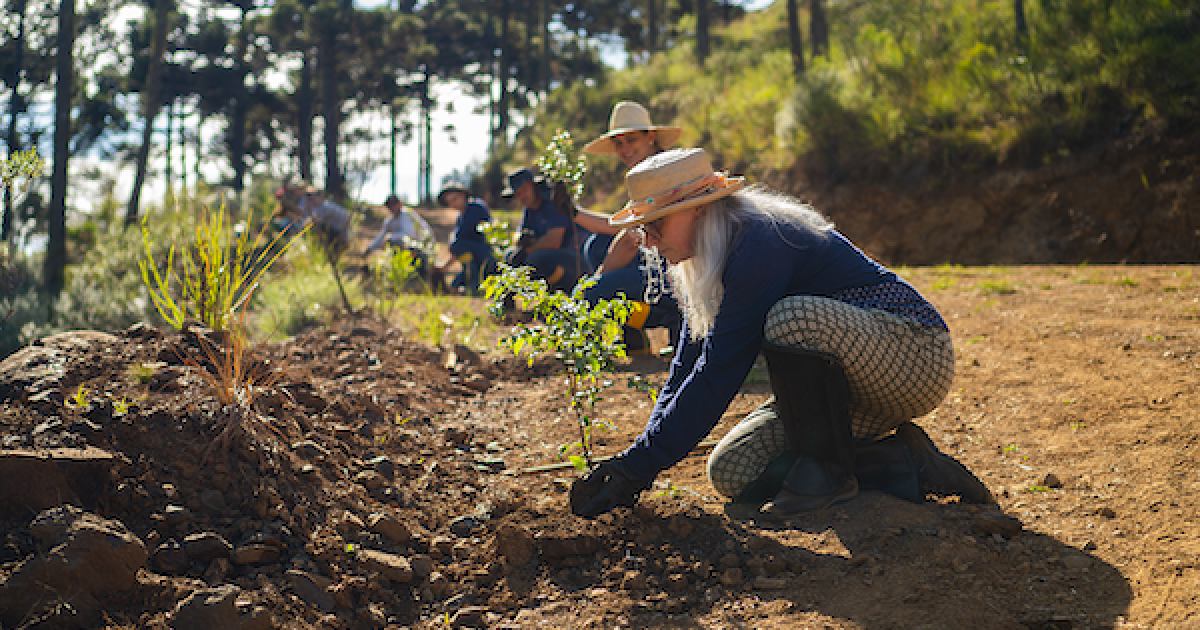
Without immediate action and emissions reductions across all sectors, limiting global warming to 1.5 degrees Celsius will be well beyond reach. According to a 2022 IPCC report, global greenhouse gas emissions need to stabilize before 2025 and be reduced by 43 percent by 2030, which is why urgent climate action from both the public and private sector is vital.
In recent years, multinational corporations have become more engaged, recognizing their duty to preserve nature and reduce their climate impact, whether it be because of societal pressure, their own initiative or financial risk.
The race to net zero is on. However, there is a lack of consensus on how to translate global reduction targets into company-specific actions. The voluntary carbon credit market is unregulated, but there are moves to introduce more credibility and prove its usefulness. For example, the International Emissions Trading Association (IETA) found that implementing an international carbon market under the Paris Agreement could lead to cost reductions of $250 billion per year in 2030 and therefore facilitate investment leading to carbon reductions of 50 percent.
Moving from discussion to implementation isn’t enough. A long-term, collaborative approach needs to be at the heart of all pledges, initiatives and agreements to meet climate targets. Two examples of this are the preservation of the world’s biodiversity and water resilience.
Protecting and preserving our ecosystem
Biodiversity and healthy ecosystems provide us with oxygen, regulate weather patterns, pollinate our crops and produce our food, feed, fibers and essential raw materials — all of which are at serious risk if we fail to act with speed, impact and scale.
Collectively, we must champion biodiversity and healthy ecosystems across the value chain. And this is best achieved through responsible sourcing practices and strategic partnerships.
It is crucial for private sector companies to seek outside expertise and skills to guide restoration and, in turn, enhance credibility and visibility of their social responsibility. In 2022, Tetra Pak and Brazilian NGO Apremavi launched the Araucaria Conservation Programme, a pioneering land restoration initiative in Brazil.
The project’s goal is to restore up to 17,297 acres of land — equivalent to 9,800 soccer pitches — by 2030 to protect biodiversity in the region and generate positive economic and social benefits for the local communities. Apremavi, which has extensive experience in conservation and restoration projects, is helping us target an area of particular risk, the Forest of Araucarias, which today only has 3 percent of its original area preserved. It’s one example of how a global private company can work with a local partner for the benefit of many.
Water resilience
For decades, water has been perceived as a free commodity, but the increased disruption in climate patterns leading to extreme weather, unpredictable water availability and exacerbating water scarcity has altered our perceptions.
Water is essential to the food and beverage industry and, in most foods, is the primary ingredient, while also being used in processing lines for cleaning and to sanitize. Companies active in this space can no longer afford to waste water.
The good news is that technology is already enabling the sustainable use of water by allowing it to be safely saved and reused. For food and beverage companies dependent on water for their manufacturing processes, it is often harder to reduce their consumption. For this reason, it is crucial to evaluate wastewater and invest in new technologies that enable water reuse.
Food and beverage plants dispose of large quantities of water every day. Sometimes that water has been mixed with cleaning detergents or small amounts of product. Or it can be the byproduct of making cheese or yogurt. Membrane filtration technology can be used to recover this water. By filtering it, the now-clean water can be used again.
Water is also used to cool processing equipment, such as homogenizers. But there are alternative cooling methods manufacturers can look at to reduce that usage, such as a closed loop cooling circuit for a homogenizer. In such pieces of equipment, up to 80 percent of the cooling water can be recirculated and used again.
Looking to the future
While the preservation of our ecosystem and water scarcity are pressing issues that require the private sector’s full attention, we must go even further. Companies have an opportunity to promote responsible sourcing practices and to collaborate to drive sustainability across the supply chain. These combined efforts are paramount to conserving and restoring biodiversity, while contributing to global water resilience. The risk of inaction is too great to be ignored.
This article is sponsored by Tetra Pak.
The post "How the private sector can help mitigate climate change" appeared first on Green Biz







0 Comments